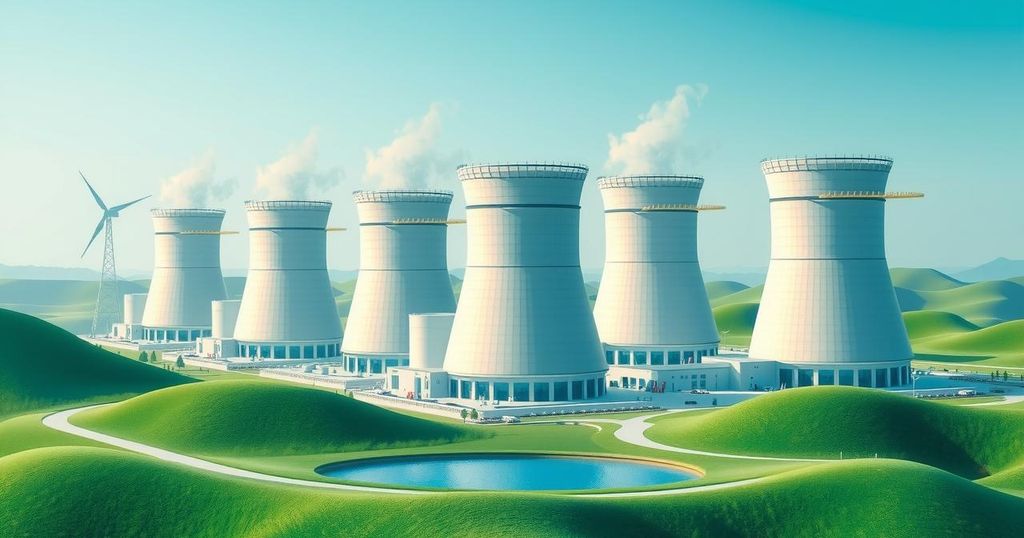Ghana Selects US and China as Vendors for First Nuclear Power Plants

Ghana has chosen the United States and China for its first nuclear plants, with no formal contracts yet signed. NuScale Power and Regnum Technology Group alongside China National Nuclear Corporation will implement Small Modular Reactors and a Large Reactor, respectively. The government has initiated a framework agreement and is assessing environmental data for site selection, aiming to integrate nuclear energy into its grid by 2034.
Ghana has made the significant decision to select the United States and China as vendors for its inaugural nuclear power plants, emphasizing the importance of these partnerships. NuScale Power and Regnum Technology Group, in collaboration with Japanese firms, will implement Small Modular Reactors (SMRs). Meanwhile, the China National Nuclear Corporation is tasked with constructing a Large Reactor (LR).
The announcement came from Dr. Stephen Yamoah, Executive Director of Nuclear Power Ghana, during a media engagement in Accra. The LR will have a capacity of 1,200 megawatts, while the SMRs will consist of 12 modules, each generating 77 megawatts, leading to a cumulative capacity of 924 megawatts.
Dr. Yamoah indicated that the LR construction will adhere to a Build, Operate, and Transfer (BOT) financial model involving local equity participation, while the SMRs will seek funding through Public-Private Partnerships (PPP). A framework agreement has already been signed with both vendors, and experts are currently compiling environmental and oceanic data to pinpoint the most suitable location for the plants.
Mr. Archibold Buah-Kwofi, Acting Director of the Nuclear Power Institute, stressed the necessity for stable and affordable electricity as a cornerstone of national development. He highlighted Ghana’s current energy mix, which predominantly relies on fossil fuels and hydro resources, with renewables contributing a mere one percent.
“We need to fast-track the adoption of nuclear power to secure our energy future,” he emphasized, underlining the urgency for robust regulatory frameworks and a qualified workforce. Nuclear energy is expected to lessen dependence on fossil fuels, combat climate change, and enhance energy security in the nation.
The government aims to incorporate one gigawatt of nuclear power into the energy grid by 2034. The forthcoming nuclear plant is set to facilitate industrialization, compensate for dwindling hydro resources, reduce tariffs for industries, allow for desalination, and foster job creation.
The selection process for vendors was meticulous, commencing with 16 proposals from various contenders. A specialized technical team led by the Energy Ministry evaluated the submissions, eventually finalizing the choice of the two vendors. Ghana’s nuclear aspirations had been stalled after a coup in the 1960s but were rejuvenated in 2006 with the support of the International Atomic Energy Agency (IAEA). Several countries in Africa are now exploring nuclear energy solutions to address power shortages and stimulate economic advancement.
In summary, Ghana has strategically selected the United States and China as the vendors for its first nuclear power plants, aiming to enhance its energy security and support national development. The engagement of both Small Modular Reactors and a Large Reactor underscores Ghana’s commitment to diversifying its energy sources and reducing reliance on fossil fuels. As the nation progresses towards integrating nuclear power, significant attention will be focused on regulatory frameworks and skilled workforce development to ensure the success and safety of these initiatives.
Original Source: www.myjoyonline.com








